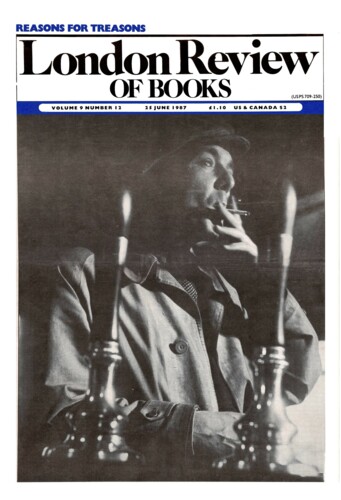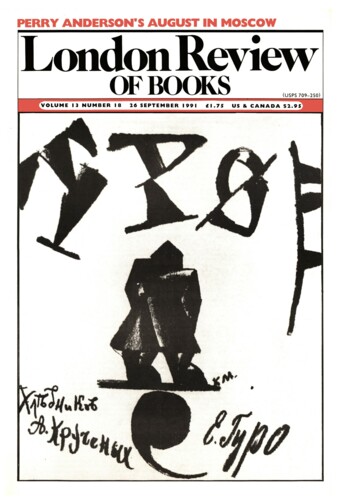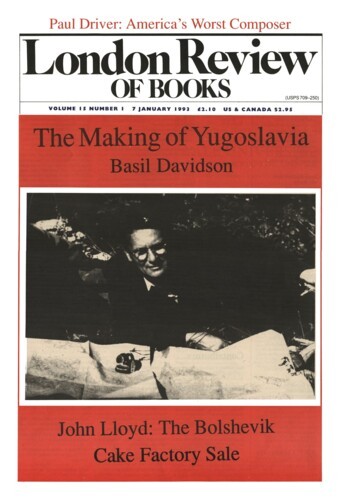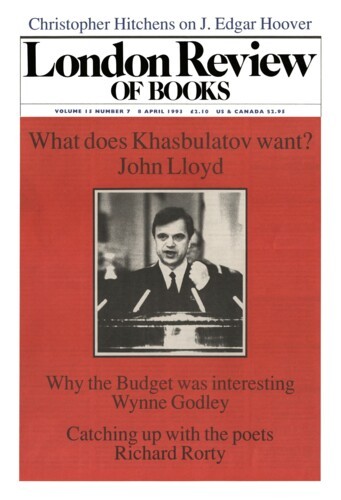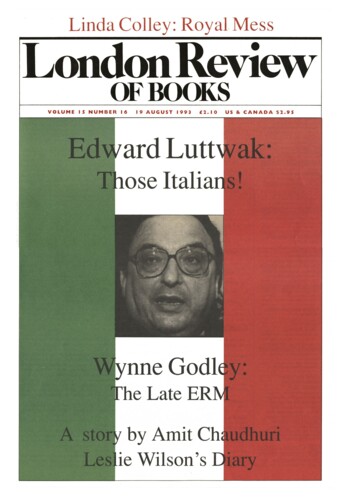Boulez in progress
Paul Driver, 25 June 1987
Boulez has been the omnipresent conscience of post-war music. He has applied to his own music rigid criteria of method and historical validity, and revised many works again and again, often withdrawing them altogether. He has become a martyr figure somewhat after the fashion of Schoenberg, also self-appointed to a role of revolutionary innovator; the special prize Boulez has paid is not increasing isolation but creative sterility – compositions have flowed ever more slowly from his pen. (Répons, 1980, for ensemble and live electronics, is his only substantial piece in a decade, and it remains unfinished and experimental.) Boulez’s phenomenal scrupulosity has been directed outwards as well – in numerous lectures, articles, interviews, tirades (and part of a treatise) which have exerted wide and possibly dangerous influence over younger composers. These writings, though, have not all been readily accessible in English hitherto. While the scintillating volume of Conversations with Célestin Deliège (Eulenburg, 1976) and the refractory theoretical work Boulez on Music Today (Faber, 1971) are – or were – easily obtainable, the English translation of Boulez’s first book of essays, Notes of an Apprenticeship, published in New York by Knopf in 1968, remains exceptionally hard to find in this country. Now the second collection, Points de Repère, issued in France in 1981 (revised 1985), is available, in a rearranged format with a translation by the late Martin Cooper, under the title Orientations.’
